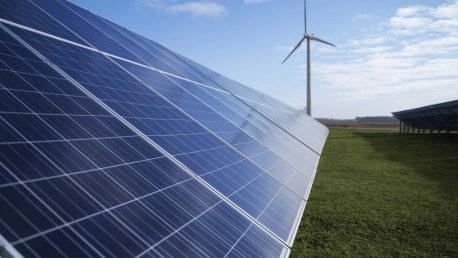Advancements in green technology, including solar and wind power, as well as electric vehicles, are pivotal for sustainable progress. Despite this, they are thwarted not just by technological and price barriers but also by deliberate misinformation tactics. These disinformation efforts are often orchestrated by parties with interests in fossil fuels, with the goal of influencing public perception and political decisions against renewables. These tactics involve propagating myths and falsities to create doubt about the reliability and benefits of clean energy. The pervasive spread of such deceptive narratives is worrisome, as it could hinder the transition to renewable solutions, delay crucial climate policies and deter investment in environmentally friendly innovations. The struggle against misinformation is thus a significant obstacle for the future of sustainable energy.
Unmasking the Myths
Legal experts from Columbia Law School’s Sabin Center for Climate Change Law have taken a stand against the barrage of false information. They analyzed and debunked a selection of common fallacies concerning health hazards, environmental risks, and economic viability related to clean energy technologies. For example, fears about the electromagnetic fields generated by solar farms are dispelled by scientific evidence indicating their safety for humans. Similarly, the alleged threat of heavy metal leaching from solar panels does not stand up to scrutiny, as the industry adheres to strict recycling and material containment standards.In addition to health and environmental safety myths, economic arguments against renewable energy have been discredited. The claim that solar power is not economically viable without government subsidies ignores the subsidies and externalized costs of fossil fuels. Moreover, the belief that renewables cannot function without complete fossil fuel backup has been proven wrong by advances in energy storage and the increasing reliability of renewable energy grids. Each myth debunked serves as a testament to the resilience and potential of clean energy technologies against unfounded criticisms.
Repercussions and Rebuttals
The spread of misinformation is a real threat to the progression of clean energy initiatives. Many people support green energy, but false narratives can breed doubt, impacting public perception and policymaking. This could delay renewable energy projects and weaken sustainable investment efforts. Prompt and accurate information is essential to counter these fallacies.Legal experts and environmental advocates are actively challenging these misconceptions with evidence and solid arguments, highlighting the environmental, economic, and health advantages of clean energy. The Sabin Center’s contributions are crucial, providing reliable information to those shaping energy policies and investments. Their efforts ensure that decisions about energy are based on truth, fostering a more informed public dialogue on sustainability.









